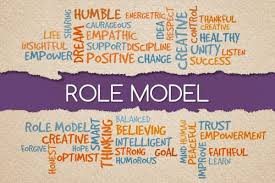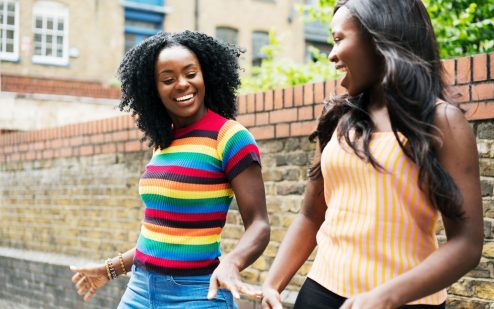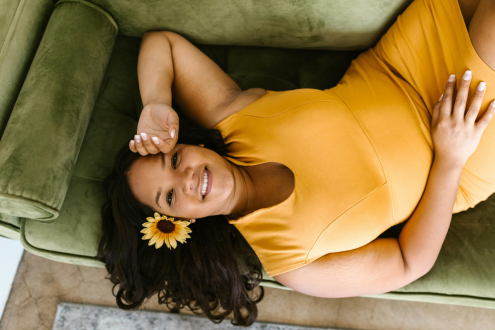Why we all need role models
Choosing good role models can help us to become the best version of ourselves.

When I am coaching, particularly if it is around a thorny issue, I may ask someone “What would you advise your best friend to do if s/he was in this situation?”. The answer can push someone through the fog of their own thoughts and provide the motivation they need to do what is right for them, too.
And it’s a reminder that we all need human touchstones; people we can check in with when we are grappling with a problem, or uncertain which course of action we should take.
When we are young, there is almost always an older person in our lives whom we admire and respect. This can be a relative or teacher, or perhaps a sports coach or other youth worker. We look up to them and model our behaviour on theirs. We may do this without even thinking about it.
As we get older, our role models will change. More people come into our lives and influence what we do and how we think. We replace old role models with new ones, those who better fit our current situation and aspirations.
If role models are the people we compare ourselves to, and set the standards we aim for, it’s important that we choose them wisely. Positive role models can help us to become the best version of ourselves (bad role models will do the opposite). So where should we look?
We can start with our elders. Older relatives such as parents or grandparents are often our early role models but just because we are older, and so are they, it doesn’t mean they don’t still have things to teach us. We should listen to their stories, understand their struggles and learn from their successes and their failures. So often we dismiss the generation before us as irrelevant, but there are still things we can learn from them (even if at times we need to use strong filters).
I have found role models in history or in biographies. Just last weekend, I read the last of Maya Angelou’s autobiographies (Mom & Me, & Me & Mum). Her life could not have been more different to mine but her bravery, her ability to forgive and her capacity for love, all resonated with me as things to aim for.
Role models also reside in novels. One of my favourite quotes is from To Kill a Mockingbird. “You never really understand a person until you consider things from his point of view…until you climb into his skin and walk around it,” Atticus tells his daughter, Scout. And I’ve never read a more powerful story about the power of empathy.
If we are fortunate, we can find role models in the workplace. Although the term is widely used in connection with leadership and management, our best role model may not be our boss. It may be someone who projects confidence and ability; who acknowledges her successes without coming across as arrogant; or who seems to have a good work/life balance even though she is a working mum.
Finally, a community such as this one is rich in role models. Role models we find online help us to recognise that no one belongs on a pedestal. We are all human, and we all make mistakes. It is how we deal with the mistakes that count. In online communities, if someone does or says something you don’t agree with, you will find other role models you can look to instead.
If we are lucky enough to know our role models personally, we can ask them questions that will dig a bit deeper into the experiences they have had and see what we can learn from them. If we find them in a book, or in history, we can ask ourselves the following questions:
What do I admire and respect about this person?
What do I understand about their journey and their experiences, and how does this inspire me in my own journey?
What strengths and abilities do they show that I would like to improve in myself?
If I could do one thing to be more like my role model, what would it be?
Understanding our role models, and why we have chosen them will helps us to build an understanding of ourselves, and the kind of person we want to be.
Louise Rodgers
Founder & coach
The competing pressures of modern life can make it hard to keep a sense of who you are, what you want, and the steps you need to take in order to live your “best life”. I give the individuals and businesses I work with the opportunity to stand back and take stock. A skilled thinking partner to work with while you do this may be all you need in order to find clarity, a renewed sense of purpose and a good view of the road ahead. I call this process reflect, reframe and refocus and I do my best to make sure it is a fun, creative and thought-provoking journey of self-awareness. Before training as a coach with Barefoot, I co-founded and ran my own PR agency. I know what it’s like to build and lead a creative start-up, to juggle multiple projects and to find some balance between work, home and family life. I have found my niche in working with creative individuals and entrepreneurs from all backgrounds. Past clients have included one who runs a ninja training gym, another embarking on a new career as delicatessen owner and a third who now heads up a social enterprise business.



